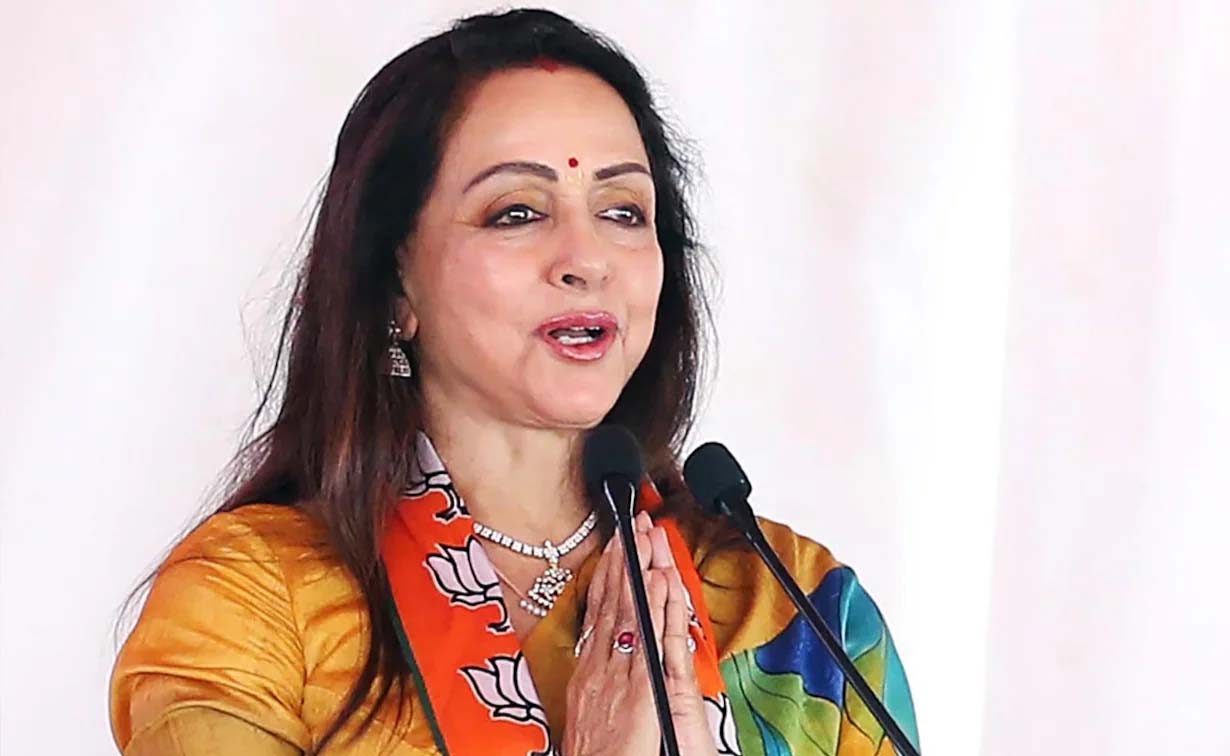Mathura: The balloting process for the Mathura parliamentary constituency is scheduled for the second phase on April 26. Current BJP MP, Hema Malini, seeks to secure a third consecutive term as she competes against Mukesh Dhangar from the Congress-Samajwadi alliance and BSP contender Suresh Singh.
The Mathura Lok Sabha district encompasses five Assembly segments, all of which have been under the governance of BJP representatives since 2022. The saffron party has nominated Hema Malini for the third time. Given the significant Jat population in the area, the BJP anticipates leveraging Malini’s connection through her husband, actor Dharmendra, a revered figure in the Jat community.
The electorate in the district numbers 19,23,263 individuals, comprising 10,28,840 males and 8,94,362 females. In total, 15 candidates, including those from the principal political factions, are vying for this seat.
Mathura’s demographic composition reveals a dominant Jat presence at approximately 4,37,654 individuals. The region presents a unique caste distribution with Brahmins totaling 3,07,612, Kshatriyas 2,27,889, and Vaishyas 1,54,793. Additional groups include Yadavs at 45,287, Gurjars 45,998, Lodhis 27,552, Baghels 49,52, Jatavs 2,30,628, Khatiks 18,814, Koris 20,519, Dhobis 18,777, and Valmikis 55,224 voters. Furthermore, there are 1,56,397 minority voters: Sikhs 1,436, Christians 1,897, and Punjabis 2,000.
Mathura, historically known as Madhupura, is celebrated as Lord Krishna’s birthplace. The district boasts renowned temples in Mathura, Govardhan Barsana, Nandgaon, Gokul Mahavan, and Vrindavan. Under the BJP-led administration since 2017, Chief Minister Yogi Adityanath has recognized numerous locales in Mathura as sacred sites, imposing restrictions on the sale of meat and alcohol within a 500-meter radius of these temples.
In recent years, grassroots initiatives have pushed for the rejuvenation of the Yamuna River, an issue recurrent in elections. Despite assurances during both national and state elections, substantial progress in this realm remains elusive.
Another prevalent concern in pre-election discussions is the reopening of the Chhata Sugar Mill on Agra Delhi Highway, which ceased operations in 2009 due to financial losses. The state government has commenced the tender process for reopening the facility and has pledged a resumption of activities shortly.
The persistent traffic congestion on major routes in Mathura and Vrindavan, affecting millions of pilgrims, poses another challenge. When addressing local industries, political parties consistently pledge to enhance employment opportunities. The Indian Oil Corporation Refinery on Mathura Agra Delhi Highway, a major industrial presence since its establishment by former PM Indira Gandhi in 1980, plays a key role.
Additional industries include sectors such as sanitary ware, apparel, and a PepsiCo subsidiary. Nonetheless, the past decade has seen a stagnation in the establishment of new industries, raising concerns about the lack of job prospects in the region.




